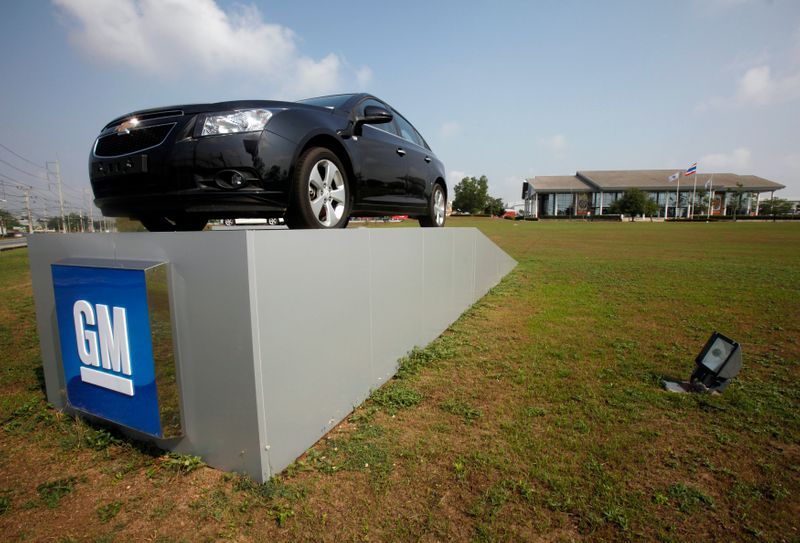This post was originally published on this site
https://i-invdn-com.akamaized.net/trkd-images/LYNXMPEG1I0LE_L.jpg
By Panarat Thepgumpanat
BANGKOK (Reuters) – General Motors will begin laying off around 1,500 employees in Thailand in June, after announcing the sale of its production plants in the country, a government official said on Wednesday.
GM (N:) said on Monday it would sell its two plants in the eastern industrial province of Rayong to China’s Great Wall Motor (SS:). Its latest moves to retreat from Asia also included winding down its Australian and New Zealand operations.
Jak Punchoopet, adviser to the Minister of Labour, told Reuters all of the Rayong plants’ employees would be laid off under the terms of GM’s sale agreement with Great Wall.
“The agreement was only for the sale of the plants and didn’t include the transfer of employees,” he said.
“Their plan is to lay off 1,000 employees in the auto parts manufacturing line in June, and then around 300 to 400 in the assembly line in October,” Jak said. The rest of the staff at the two plants would be let go toward the end of 2020, he said.
“Everything will be done by the end of the year.”
GM will abide by Thai labor law and provide severance pay for the affected employees, Jak said, adding that the company will also grant an additional four-month bonus to all employees.
Great Wall Motor, one of China’s biggest sport-utility vehicle makers, said it will sell cars from the Thai base as part of its plans to go global and tap the Southeast Asian automotive industry, for which Thailand is a hub.
GM did not respond to questions about the layoffs.
(Panarat Thepgumpanat; Writing by Patpicha Tanakasempipat; Editing by Tom Hogue)
Fusion Media or anyone involved with Fusion Media will not accept any liability for loss or damage as a result of reliance on the information including data, quotes, charts and buy/sell signals contained within this website. Please be fully informed regarding the risks and costs associated with trading the financial markets, it is one of the riskiest investment forms possible.

